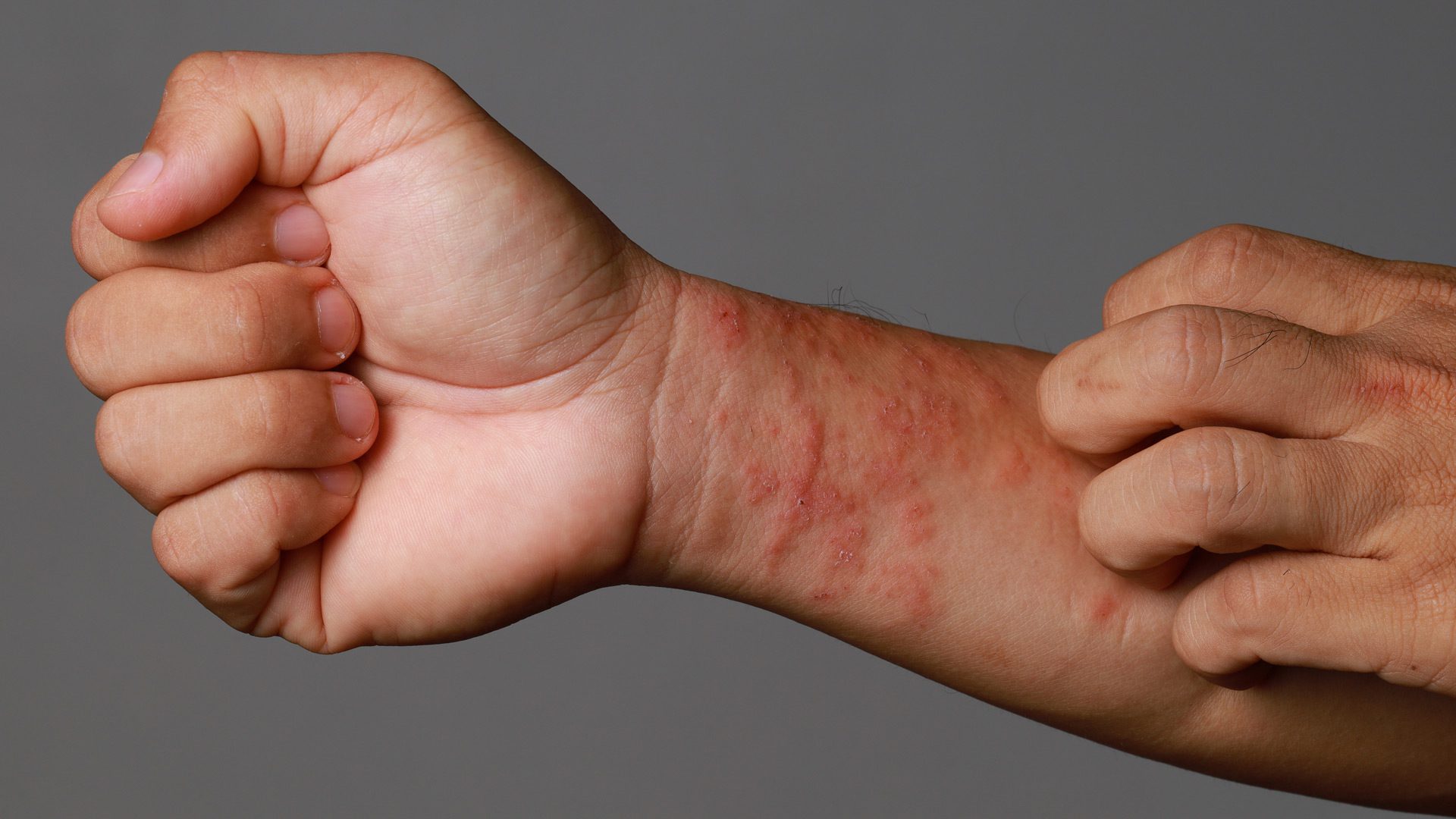Eczema is a common, chronic inflammatory skin condition that affects millions of people worldwide. Often manifesting as red, itchy, and inflamed patches of skin, eczema can significantly impact quality of life. In this post, we delve into what eczema is, explore its triggers, discuss various treatment options, and offer practical skincare and lifestyle tips to help manage this condition effectively.
What Is Eczema?
Eczema, particularly atopic dermatitis, is a condition characterized by a compromised skin barrier and chronic inflammation. It typically presents with symptoms such as:
- Itchiness: Often severe and persistent, leading to scratching that can worsen the skin condition.
- Redness and Inflammation: Affected areas may appear red, swollen, or irritated.
- Dry, Scaly Skin: The skin may become dry and develop scales or flaking patches.
- Thickened Skin: Over time, repeated scratching can lead to lichenification, where the skin becomes thick and leathery.
While atopic dermatitis is the most common form of eczema, there are other types including contact dermatitis, dyshidrotic eczema, and nummular eczema, each with its own set of characteristics and triggers.
Causes and Triggers
Eczema is multifactorial, with several factors contributing to its onset and exacerbation:
- Genetics: A family history of eczema or other atopic conditions (such as asthma or allergic rhinitis) can increase the risk.
- Environmental Factors: Exposure to allergens (like pet dander, pollen, or dust mites), irritants (such as harsh soaps, detergents, or chemicals), and extreme weather conditions can trigger flare-ups.
- Immune System Dysregulation: An overactive immune response can lead to inflammation and skin barrier dysfunction.
- Stress: Emotional stress is known to exacerbate eczema symptoms, making stress management an important aspect of treatment.
- Infections: Bacterial or viral skin infections can worsen existing eczema or trigger new outbreaks.
Understanding personal triggers is key in managing eczema, as avoiding these factors can help reduce the frequency and severity of flare-ups.
Diagnosis and When to Seek Help
Diagnosing eczema primarily involves a clinical examination by a dermatologist. The diagnosis may include:
- Medical History: Discussing family history, previous skin issues, and potential allergens or irritants.
- Physical Examination: A thorough examination of the skin to assess the pattern and severity of the lesions.
- Patch Testing: In cases of suspected contact dermatitis, patch testing may be recommended to identify specific allergens.
If you experience persistent itching, frequent flare-ups, or if eczema significantly affects your daily life, it is important to consult a dermatologist. Early diagnosis and tailored treatment can prevent complications such as skin infections and long-term skin changes.
Treatment Options
Eczema management is highly individualized, as treatment plans depend on the severity of the condition, patient age, and specific triggers. Common treatment approaches include:
Topical Treatments
- Moisturizers (Emollients): The cornerstone of eczema management. Regular application helps restore the skin barrier and maintain hydration.
- Topical Corticosteroids: Reduce inflammation and relieve itching during flare-ups. These should be used as directed by a dermatologist.
- Topical Calcineurin Inhibitors: Such as tacrolimus or pimecrolimus, offer an alternative for sensitive areas like the face and neck and help reduce inflammation without the side effects of steroids.
Systemic Treatments
- Oral Medications: In moderate to severe cases, systemic therapies like corticosteroids or immunosuppressants may be prescribed.
- Biologic Therapies: Newer treatments, such as dupilumab, target specific pathways in the immune response and have shown promise in reducing eczema symptoms for patients with moderate-to-severe atopic dermatitis.
Adjunctive Therapies
- Phototherapy: Controlled exposure to ultraviolet light can help reduce inflammation and improve skin appearance in some patients.
- Antihistamines: May be recommended to alleviate severe itching and help improve sleep during flare-ups.
Skincare and Lifestyle Tips
Beyond medications, a proactive skincare routine and lifestyle adjustments are essential for managing eczema effectively:
- Gentle Cleansing: Use mild, fragrance-free cleansers that do not strip the skin of its natural oils. Avoid hot water, which can further dry out the skin.
- Regular Moisturizing: Apply a thick moisturizer immediately after bathing to lock in moisture. Look for products that are specifically designed for sensitive or eczema-prone skin.
- Identify and Avoid Triggers: Keep a journal to track flare-ups and identify potential triggers such as certain foods, fabrics, or environmental factors.
- Stress Management: Incorporate relaxation techniques like yoga, meditation, or deep breathing exercises to help manage stress, which can exacerbate eczema.
- Protective Measures: In colder months, use humidifiers to maintain indoor moisture levels, and wear soft, breathable clothing to minimize skin irritation.
Living with Eczema
Eczema is more than just a skin condition—it can affect emotional well-being and daily functioning. Educating yourself about the condition and working closely with your dermatologist are crucial steps in managing eczema. Support groups, both online and in-person, can also provide comfort and advice from others facing similar challenges.
Conclusion
Eczema is a complex and often challenging condition, but with a comprehensive treatment plan and lifestyle adjustments, it is possible to manage symptoms effectively and improve overall quality of life. If you or a loved one struggles with eczema, consider scheduling a consultation with a dermatologist who can provide a personalized treatment plan tailored to your needs.
Your journey toward healthier, more comfortable skin starts with understanding your condition and taking proactive steps to care for it. For more detailed guidance or to book an appointment, please contact our clinic. Together, we can work towards clear, healthy skin.

